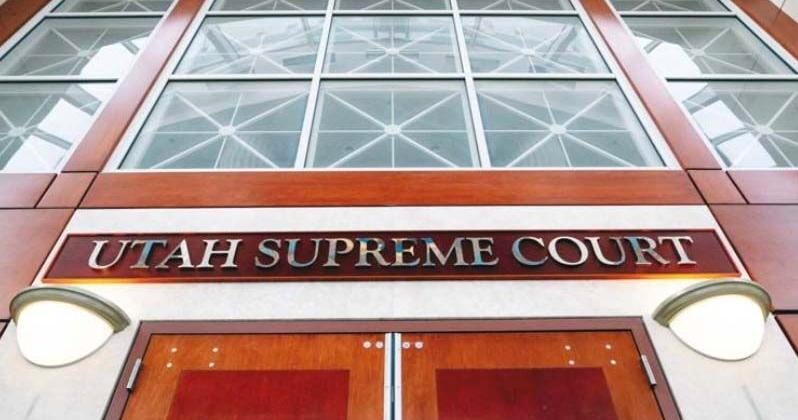
SALT LAKE CITY – The Utah Supreme Court here has agreed to accept an appeal from attorneys for state lawmakers seeking to change the state’s Constitution via a voter referendum on the November ballot.
During a Sept. 17 candidate forum at the Logan Golf and County Club, Sen. Chris Wilson (R-Dist. 2) confirmed that the Utah Supreme Court has slated a hearing on the legislative appeal for Tuesday, Sept. 24.
In that hearing, Supreme Court justices likely will decide whether a November ballot initiative giving state lawmakers the authority to ignore or re-write voter-approved initiatives will be counted or not.
Attorneys for the Legislature filed the appeal on Sept. 13, seeking to overturn a ruling by Judge Dianna Gibson issued in 3rd District Court that would block the so-called Amendment D from being considered or counted following the general election in November.
In a recent newsletter to constituents, Wilson defended the legislative proposal, saying that it would block “…foreign entities and outside special interest groups with deep pockets from pushing ballot initiatives that could fundamentally change the state that we know and love.”
Gibson didn’t buy that or similar arguments in a hearing held on Sept. 11, ruling that the language of the proposed amendment was deliberately misleading. The plaintiffs in the case – including the League of Women Voters of Utah and the Mormon Women for Ethical Government – applauded that decision.
The root of this controversy goes back to a July ruling by the Utah Supreme Court that reversed a 3rd District Court decision to dismiss part of a lawsuit brought by the League of Women Voters of Utah (LWVU) that has been working its way through the state courts since 2022.
Utah voters passed a ballot initiative in 2018 to create an independent commission to redraw maps for Utah’s congressional districts, a process that takes place every ten years following the Census.
In 2021, however, the Republican majority in the Legislature opted to ignore the commission’s recommendations and drew its own districts.
The LWVU lawsuit had argued that the Utah Legislature violated Utahns’ constitution right to alter and reform the state government when lawmakers repealed and replaced Proposition 4.
A 3rd District Court had dismissed that claim, only to be overturned by the Utah Supreme Court in July, sending the case back to the lower court.
Seeing that ruling as a threat to Republicans’ continued dominance in Utah politics, GOP chair Robert Axson and other officials urged that Gov. Spencer Cox and lawmakers perform an end-run around the Supreme Court, making its ruling a moot point.
Amendment D was then advanced on a party-line vote by Republican lawmakers during a special session on Aug. 21.
In the state’s appeal to the Utah Supreme Court, attorney Tyler Green argued: “People decide elections; courts don’t.”
The plaintiffs meanwhile insist that Gibson’s injunction – which directed that Amendment D be stricken from the November ballot and/or not counted by state authorities – should stand.
Wilson points out that Amendment D would not change Utah’s initiative process.
“Utahns should have the final say in shaping our constitution and how our government operates, not the courts,” he notes.
“Through this amendment, voters will have the power to decide whether or not to secure our state’s long-standing practices that have helped make Utah the best state in the nation.”

